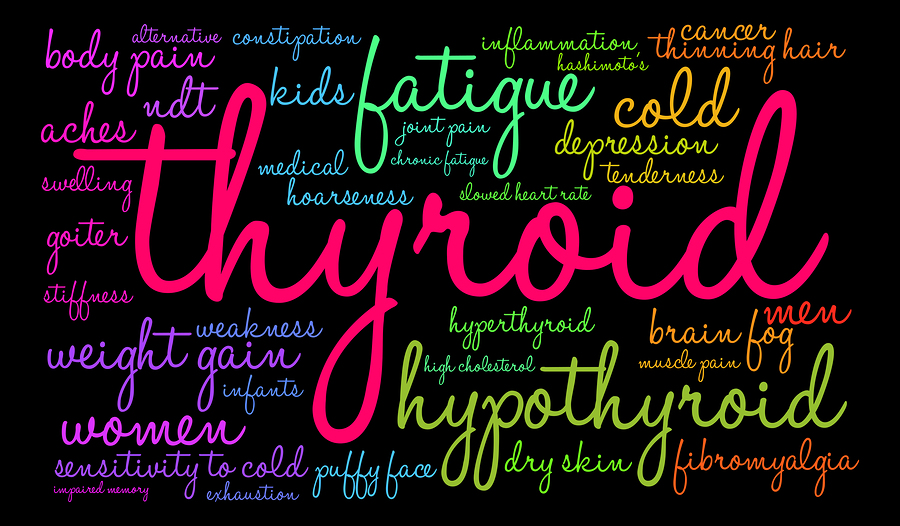The Psychosomatic Connection:
If you’ve looked at a diagram of a thyroid during Thyroid Awareness Month this January, you may not think this little butterfly-shaped gland could do too much to affect your body or mind. Of course, you would be wrong. I certainly didn’t give it a second thought before I understood that, like everything else in the body, the thyroid is connected to some of the most basic functions of a healthy, pain-free existence.
So what do thyroid problems have to do with a healthy body and mind? Let me answer that for you. The thyroid makes up a major part of the endocrine system, the network of glands that regulates your metabolism, sleep patterns, tissue function and growth, and mood, among other functions critical to bodily integrity. When the thyroid doesn’t work properly, your body and mind definitely feel it. For example, Hypothyroidism slows your metabolism, causing weight gain and low energy. When combined with an increased risk of Type 2 Diabetes and depression, these problems are not insignificant. On the other hand, Hyperthyroidism, which is marked by an excessive production of the thyroid hormone, causes drastic weight loss, increased appetite, anxiety, and even tremors, among other symptoms. These psychosomatic connections can tell us more about our health
In addition to the decreased energy and weight fluctuation that both of these conditions cause, hypothyroidism and hyperthyroidism also affect the muscles and joints in often uncomfortable and even painful ways. If you have hypothyroidism, your muscles and joints may feel stiff or sore. If you have hyperthyroidism, your muscles may feel weak. At first glance, I thought that these problems might be fixable with some dietary changes and a new exercise regimen, but drastic changes to these can actually be dangerous to your health if you have either of these conditions. For sure, slowly increasing your daily intake of certain dietary supplements, such as Selenium, can help some of the symptoms, but make sure to talk to your doctor first. Concerning exercise, hypothyroidism causes your heart rate to slow, so sudden increased exertion could shock the heart. For people with hyperthyroidism, their bodies are already burning at near-peak levels, which means that if they were to start a strenuous workout, they could be in danger of overheating. Talking to a doctor about this psychosomatic connection can help find the correct diagnosis.
But what about exercises that don’t put as much strain on the body? Certain yoga poses, for instance, can help treat some uncomfortable symptoms of poor thyroid, such as joint and muscle pain. The Feldenkrais Method can also help alleviate some of the discomfort associated with hypo- and hyperthyroidism without risking overexertion. This is good news for those whose thyroid problems have caused anxiety or depression too, since physical activity is linked to a healthier mindset.
If you have any of the psychosomatic connection or symptoms of hypothyroidism or hyperthyroidism, be sure to talk to your doctor.
He or she will properly diagnose your symptoms and put you on the proper medication to treat your condition. Once you are back in control of your thyroid, call me and let me teach you more about your physical therapy options and how to experience a more aligned body and mind. With Thyroid Awareness Month coming to a close, there is no better time to take action.
812-344-4119

